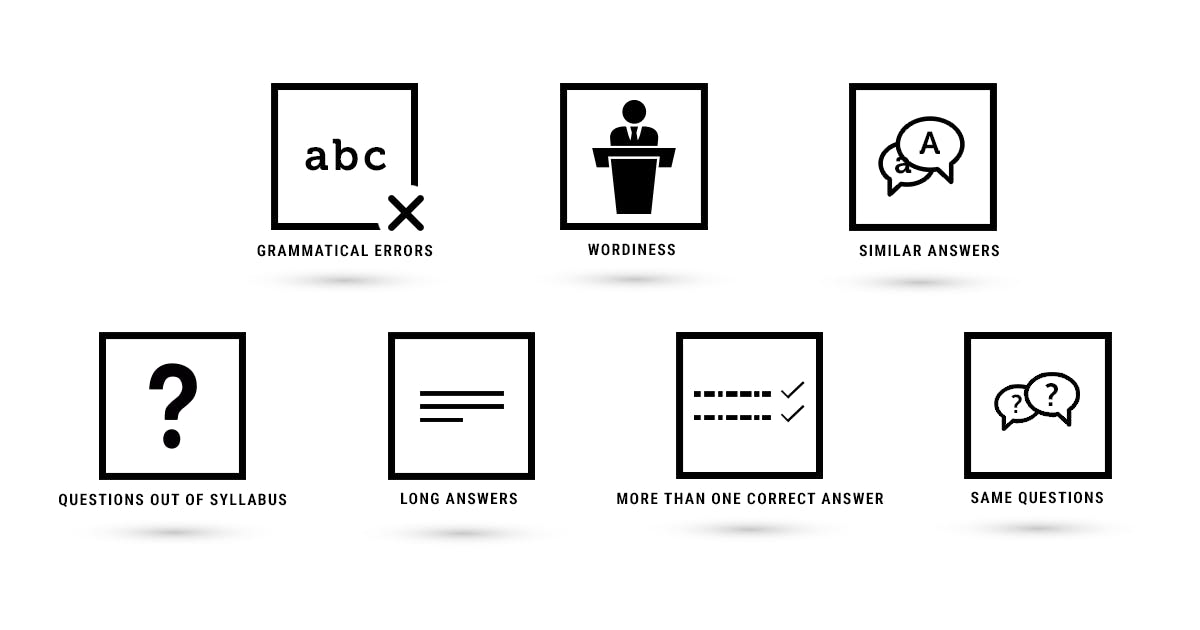7 Things To Avoid When Creating Knowledge Tests

Someone said “Knowledge is the best thing money can buy” and I completely agree with that.
Creating knowledge tests online can be a “tricky business”. Now you are probably wondering what is she talking about, this thing should be easy, right? I am sorry to break it out to you, but there are more don’ts than do’s to follow here. To accurately test the knowledge of your employees, customers or anyone who you need to test, you need to be smart about it. Here are a few common mistakes that you should avoid if you want to build a proper knowledge test.
Grammatical errors
It goes without saying, that a knowledge test CANNOT have grammatical errors. Also, you need to understand the logic behind the test and many other things regarding the particular language you are using. Literacy at it’s best!
Wordiness
It is going to be ideal if you want to keep your questions concise and straight to the point. Sure, adding some long sentences here and there to “spice up the game a little” is great, but for the most part, the questions should be understandable.
Adding questions out of syllabus
It is essential that you stick to the common material that your test takers already have. A good idea is to make questions out of the area of the study in real life, which makes the test interactive and engaging. When you add questions from areas that have not been taught, it makes the test takers lose their morale and positivism. It is essential to know that they wish to learn and then take a test instead of learning through an examination.
Similar answers
When you make a multiple choice based test, it is necessary that all the answers are reasonably distinctive and easily perceivable by test takers. When the answers are relatively close to each other, it can easily lead to confusion and unnecessary panic among the test takers. The best way to create a proper test is by creating potentially plausible but incorrect responses with one clear, correct, answer that only a true learner can answer correctly.
Long Answers
It is crucial to know that you need to provide all sufficient details to deduce an answer through the question. It is quite common for new test creators to make short questions with lengthy explanations. This can be misleading to the test taker.
More than one correct answer
It goes without saying that in knowledge testing, it is essential to have only one correct answer out of the bunch of options. If there is more than one correct answer, then the test taker will be easily thrown into a dilemma of choosing the right solution, which can disturb the mentality of the person taking the test. Remember that it is the knowledge that needs to be tested and not the perseverance of the test taker.
Same questions
Avoid creating the same questions for everyone who’s going to take the test. It is ideal for adding a sense of unpredictability to your test problems to reduce the chances of cheating. If multiple tests are not possible, then mixing up the order of the questions on the test can also be the right way to combat the problem.
What are your thoughts? Are you a test creator or a test taker?




